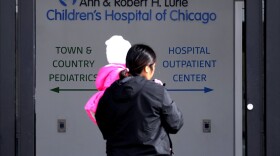-
Federal officials say they are working to develop rules to help health care facilities protect themselves against threats. But they say more money is needed from Congress to help hospitals protect themselves.
-
Changes pertained to the criteria for determining which platforms would be subject to the restrictions. House Speaker Paul Renner has argued that social media is harming the mental health of children.
-
Software sifts through millions of medical records to match patients with similar diagnoses and characteristics and predicts what kind of care an individual will need. New rules will ensure humans are part of the process.
-
The Tech Navigator program sets out to solve mysteries of smart phones, laptops and more.
-
With the rise of AI, people who once turned to Google to check on medical issues are going to chatbots. Researchers say the bots are often more accurate but urge caution in the absence of regulations.
-
Kids are focusing too close for too long and their eyes are actually growing to focus the light for things that are near. But it’s blurring their vision for distance.
-
The data, apparently taken from a location used to automate email messages, was made available by an “unknown and unauthorized party” on an online forum, HCA announced.
-
Pocketalk will assist representatives at the Department of Motor Vehicles with customers who are non-native English speakers. Hillsborough Tax Collector Nancy Millan calls the device a 'game changer.'
-
The latest decisions track closely with bills in the Legislature to effectively ban TikTok for all public employers, including state and local government agencies, public schools, colleges and universities and more.
-
Orlando Health is launching an at-home treatment service for certain patients in the east Orlando area.
-
UCF’s new Blended Learning Interactive Simulation Suite is a virtual room with 270-degree, floor-to-ceiling touchscreen walls that display curated audio and video that create an immersive experience.
-
For contact tracers of sexually transmitted infections, telephones and text messages have become ineffective. Dating apps increasingly are their best bet for informing people of their exposure risks.
Play Live Radio
Next Up:
0:00
0:00
Available On Air Stations











